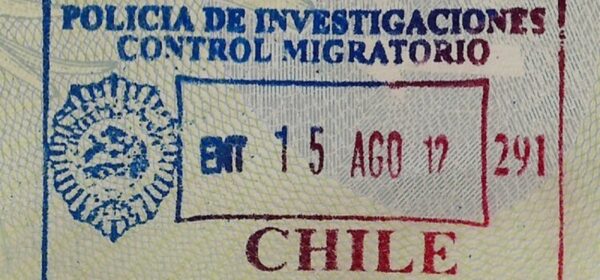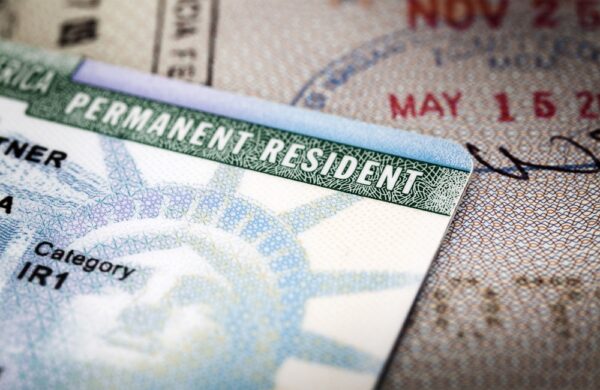With its booming economy and great work culture, Canada is one of the top countries in which foreigners apply for work. If you're thinking of working in Canada, you need to get familiar with the different work permits in Canada to make the right choice for yourself. We will explore the different Canadian work permits and explain each of them. We will also talk about how to apply and also tips on applying.
What is a Canadian Work Permit?
If you're a foreigner aiming to settle down in Canada, working in Canada is the first step to permanent residency in Canada. A Canadian work permit is a legal document that allows a foreigner to work in Canada. The Canadian work permit is usually issued by the Canadian immigration to allow foreigners to legally work in the country either for any organisation or a specified employer.
Eligibility Requirements of a Canadian Work Permit
As we've established earlier, to work in Canada legally, you need a work permit. If you’re seeking for an employer-specific work permit as a foreign national you must have gotten a job offer from a Canadian employer or industry. Not only that, the employment process must have gone through the legal procedure with the support of the Labor Market Impact Assessment (LMIA). Foreign nationals who are recent graduates of any university or educational body in Canada don't have to go through the LMIA process; the partner of a foreigner who already has a valid work permit doesn't have to go through the LMIA process either.
Showing intent to leave Canada after your work permit has expired is essential in getting a work permit. With documents backing you up, you must also prove that the employer or industry you're to work with is eligible and not a scam. Having sufficient funds to take care of yourself or your family during your stay in Canada is important. Likewise, you must also have the financial capability to buy your return ticket when your permit expires. Your criminal record is another eligibility criterion you must meet; you must have a zero criminal record. A medical certificate is also a criterion for a work permit; you must prove that you're medically fit to work or to withstand a change in environmental conditions.
Different Types of Work Permits in Canada
There are two different types of work permit options in Canada. The open work permit and Job (Employer) Specific work permit. These different work permits require different criteria, and we will discuss each of them and their requirements.
1. Open Work Permit
An open work permit is one of the different work permits in Canada. Most foreigners often go for an open work permit as it is more flexible and does not require a job offer to get it. The open work permit gives a foreign national the liberty to work for any employer or any industry.
The following are work permits in Canada that fall under the open work permit:
i. Post-Graduation Work Permits (PGWP)
This work permit is open to international students who have graduated from a Canadian university. It permits them to work for any employer of their choice anywhere in Canada. This is a great start for international students seeking to gain relevant work experience and leverage in the job market, especially in their home country, and even a great start to permanent residency in Canada.
Depending on your academic program, a PGWP can last as little as eight months and as long as three years. Applying for a PGWP can take up to 180 days; however, you can still work post-graduation per the adventure you apply for a job before your student permits expire.
ii. Bridging Open Work Permit (BOWP)
Foreigners seeking permanent residency in Canada also need to work to keep things together. This is where the BOWP comes in. The BOWP is a permit allowing foreign nationals already working in Canada to extend their stay while their permanent residence application is ongoing. To apply for this, you must have a valid work permit.
iii. Spousal Open Work Permit (SOWP)
The spousal open work permit is for people who want to join their partner with a work or student permit in Canada. It is also for people who applied to be sponsored by their Canadian partner or foreign nationals with permanent residency. People in this category also have permission to work for any employer of their choice; however, the requirements depend on the type of permit their partner holds in Canada.
2. Employer Specific Work Permit
For an employer-specific work permit, you need a job offer and an employment contract from a Canadian employer. Also, some employer-specific work permits require a Labour Market Impact Assessment (LMIA).
i. Temporary Foreign Worker Program (TFWP)
The TFWP initiative is operated by two bodies, the Immigration, Refugees and Citizenship Canada (IRCC) and the Employment and Social Development Canada (ESDC). This program is designed to fill the shortage in the Canadian labor force. Due to this, Canadian employers hire foreign workers to fill that gap. For this program, it's the employers' responsibility to get the LMIA requirement stating that they could not find Canadian citizens to fill that spot.
ii. Global Talent Stream (GTS)
Launched in 2017, the Global Talent Stream is an immigration program designed to bring in top talents and highly skilled professionals from around the globe. Only specific Canadian employers can employ these global talent giving them the platform to compete on a global scale. Employers have to meet particular requirements of paying a processing fee of $1,000 CAD, prove their business legitimacy, and develop a labor market benefits plan with ESDC. Also, global talents also have their role to play. For an international talent employee, your educational credentials are vital as you must have an advanced education with nothing less than five years of specialized experience in the industry.
iii. International Mobility Program (IMP)
This is one of the immigration programs that offers an LMIA-exempt work permit. It allows a Canadian employer to hire temporary foreign employees without an LMIA. For foreigners to come into Canada through this route, the employer must be able to prove that the employee does not require an LMIA. Employers must also pay a compliance fee of $230 CAD.
iv. Canada-United States-Mexico Agreement (CUSMA) Work Permit
Formerly known as NAFTA, this permit is only open to the citizens of Mexico and the United States. CUMSA is an immigration program based on international agreements between these countries and the Canadian government. Often, people in this category do not require LMIA to apply for a permit. Also, it is important to note that foreigners with permanent residence in these countries are not eligible to apply for the CUMSA work permit.
v. CETA Work Permits
The CETA work permit is similar to the CUMSA work permit, but it is directed to European Union citizens. The full meaning of CETA is the Canada-European Trade Agreement. It covers European Union citizens, exempting them from the Labour Market Impact Assessment requirements. It also provides people in this category with good work opportunities in the Canadian workforce. Also, there are categories of people under CETA who can enjoy facilitated access. They include; business visitors, investors, intra-company transferees, contractual service suppliers, and independent professionals.
vi. Intra-Company Transfer
This is for highly skilled foreign employees who work in a multinational company outside of Canada and are seeking to transfer to a branch or headquarters in Canada. With the intra-company transfer, foreign skilled workers can be eligible for a work permit without an LMIA.
How to Apply for a Canadian Work Permit
Different work permits in Canada require different application processes. Likewise, the type of work permit you're applying for determines the method of application process for them. Applying for a Canadian work permit is usually online, and the process also depends on whether you're inside or outside Canada.
However, there's an exception for a few people to apply on paper, such as people with disabilities preventing them from applying online, people applying under the seasonal agricultural worker program, and refugees.
If you're in Canada at the time of application, you can follow this work permit application process:
- To apply inside Canada, you must have a valid student permit, your your sponsor must have a valid work or study permit, or you must be awaiting approval on your permanent residency.
- Create electronic copies of the required documents based on the permit you're applying for.
- To ensure you're on the right track, download and read the instruction guide on the Canadian immigration website before completing your application.
- During your application, you have to answer some questions on the page before you can upload your application form and documents.
- Create your online account or sign in if you have one already.
- Pay all required fees.
- Check your status.
Application Process For Foreigners Outside Canada
Foreign nationals applying outside Canada must apply according to their country of residence. Also, note that processing time varies based on the country you're applying from. Here's a general guideline for applying outside of Canada:
- Get the necessary registration forms based on where you're applying from.
- Follow the instruction guide to fill out your forms accurately.
- Pay your biometric fee and extend the validity of your biometrics.
- Wait for your Biometric Instruction Letter (BIL), as you need it for your work permit application.
- To avoid a delay in processing your permit, book an appointment for your biometrics at the visa application center (VAC) in your country as soon as possible.
- When you're done with your biometrics, create an account, pay the necessary fees, and keep checking your status.
Canadian Work Permit Fees
To get a Canadian work permit, you first need to pay the biometric fee, which is dependent on your country of residence. The cost of the work permit itself is $155 for an Employer-specific work permit and $100 for an open work permit holder.
Tips For Applying for a Canadian Work Permit
Now that you're familiar with the different work permits in Canada, here are some tips for applying for it.
- Be sure of the work permit you want to apply for as well as your eligibility for it.
- Ensure you have a solid job offer if you're going for a permit that requires one.
- Collate all the needed documents, such as a valid passport, job offer letter, proof of funds, medical report, police clearance certificate, etc.
- For a faster processing time, it's advisable to apply online.
- Be careful when filling out your work permit forms and other documents.
- Ensure you maintain consistent information when filling them.
- Get your biometrics done as soon as possible.
- Knowing your rights as a foreign worker will help you to be treated well.
- Use professional help such as immigration consultants when needed.
- Follow up with your application.
Conclusion
There you have it, the different work permits in Canada. Whether you've landed a job in Canada or you just want to explore the Canadian workforce, there's a suitable option for you out of their work permit collection. Irrespective of the permit types you're going for, ensure you meet the eligibility requirements—best of luck in your immigration process.
















